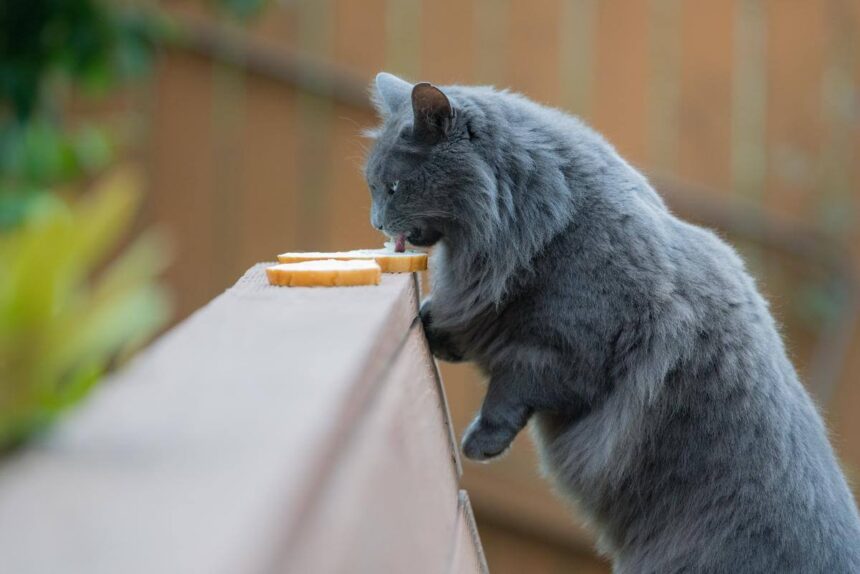When it comes to our feline companions, their dietary needs are different from ours. As cat owners, it is crucial to provide them with a balanced and appropriate diet to ensure their health and well-being. One common question that arises is whether cats can safely consume cream cheese. In this article, we will delve into the topic, exploring the nutritional needs of cats, the potential risks associated with dairy consumption, and provide guidance on whether cream cheese can be included in a feline’s diet.
Understanding the Feline Diet
Before addressing whether cats can eat cream cheese, it’s important to understand the natural diet of cats. Cats are obligate carnivores, which means they require a diet primarily composed of animal-based proteins. In the wild, cats would primarily feed on small prey, such as mice or birds. Their digestive systems have evolved to efficiently process and utilize nutrients from animal sources.
The Nutritional Composition of Cream Cheese
Cream cheese is a soft, spreadable cheese made from cow’s milk. It has a high-fat content and is typically flavored with herbs, fruits, or other ingredients. While cream cheese can be a tasty treat for humans, it does not offer significant nutritional benefits for cats.
Cream cheese is rich in fat, which is not a necessary component of a cat’s diet. Cats require protein as the primary source of energy and essential amino acids. Fatty foods can lead to obesity and related health issues in cats if consumed in excess.
Lactose Intolerance in Cats
One crucial factor to consider when determining if cats can eat cream cheese is their ability to digest lactose. Lactose is a sugar found in milk and dairy products. Cats, like many mammals, possess an enzyme called lactase that helps break down lactose. However, as cats mature, their production of lactase tends to decrease, making it more difficult for them to digest lactose effectively.
Most cats are lactose intolerant to some degree, meaning their bodies cannot fully break down lactose. When lactose remains undigested, it can cause digestive upset, including diarrhea, vomiting, and stomach discomfort. Consequently, feeding dairy products like cream cheese to lactose-intolerant cats can result in gastrointestinal issues.
Potential Risks of Cream Cheese Consumption for Cats
Apart from lactose intolerance, there are other risks associated with cats consuming cream cheese. These risks include:
High fat content
Cream cheese contains a significant amount of fat, which can lead to weight gain and obesity in cats if consumed excessively. Obesity can contribute to various health problems, including diabetes, joint issues, and heart disease.
Flavored varieties
Many cream cheese varieties are flavored with ingredients like onion, garlic, or herbs. These additives can be harmful or toxic to cats. For example, onions and garlic contain compounds that can cause damage to a cat’s red blood cells, leading to anemia.
Salt content
Some commercially available cream cheese products may have added salt. Excessive salt intake can be harmful to cats, leading to dehydration, electrolyte imbalances, and even kidney problems.
Moderation and Alternative Treats
While cream cheese is not an ideal dietary choice for cats, small amounts occasionally may not pose a significant risk, especially for cats that are not lactose intolerant. However, it is important to exercise caution and monitor your cat for any adverse reactions. If you decide to offer cream cheese as an occasional treat, make sure it is plain and unflavored, without any added ingredients that could be harmful to your feline friend.
If you’re looking for safe and appropriate treats for your cat, there are many cat-specific options available in pet stores. These treats are specially formulated to meet the nutritional needs of cats and come in a variety of flavors and textures that cats find enticing. Look for treats that are made from high-quality animal-based proteins, such as chicken or fish, and are free from artificial additives or fillers.
Additionally, there are specific cat treats designed to promote dental health. These treats are usually crunchy and have a texture that helps to remove plaque and tartar buildup, promoting healthy teeth and gums. Incorporating dental treats into your cat’s routine can be beneficial for their oral hygiene.
When offering treats to your cat, it’s important to remember that they should only make up a small portion of their overall diet. Treats should never exceed 10% of their daily caloric intake. Overfeeding treats can lead to nutritional imbalances and obesity, so it’s crucial to exercise moderation.
Alternatives to Cream Cheese
If you’re looking for safe alternatives to cream cheese that your cat may enjoy, consider the following options:
Plain Yogurt
Plain, unsweetened yogurt that is low in lactose can be given to cats in small quantities. Yogurt contains beneficial bacteria that can promote a healthy gut, but it’s important to choose a variety without added sugars or artificial sweeteners.
Cat-Specific Dairy Products
Some pet stores offer cat-specific dairy products that are lactose-free or have lactase enzymes added to aid digestion. These products are formulated to be safe and suitable for feline consumption.
Protein-Based Treats
Opt for treats that are primarily composed of high-quality animal proteins, such as freeze-dried chicken or fish. These treats provide the necessary nutrients without the potential risks associated with dairy products.
Consulting Your Veterinarian
It’s always wise to consult your veterinarian before introducing any new food items into your cat’s diet. They can provide personalized advice based on your cat’s specific needs, health condition, and dietary requirements. If you have concerns about your cat’s lactose intolerance or any other dietary issues, your veterinarian will be able to guide you and recommend appropriate alternatives.
Conclusion
While cats can technically consume small amounts of plain cream cheese without experiencing immediate harm, it is generally not recommended due to their limited ability to digest lactose and the high fat content. Cream cheese does not provide significant nutritional benefits for cats and can potentially lead to digestive issues, weight gain, and other health problems.
As responsible cat owners, it is essential to prioritize a well-balanced diet that meets their specific nutritional needs. Opting for treats specifically formulated for cats and consulting with your veterinarian will ensure that your feline friend receives appropriate and safe indulgences that contribute to their overall health and happiness.



